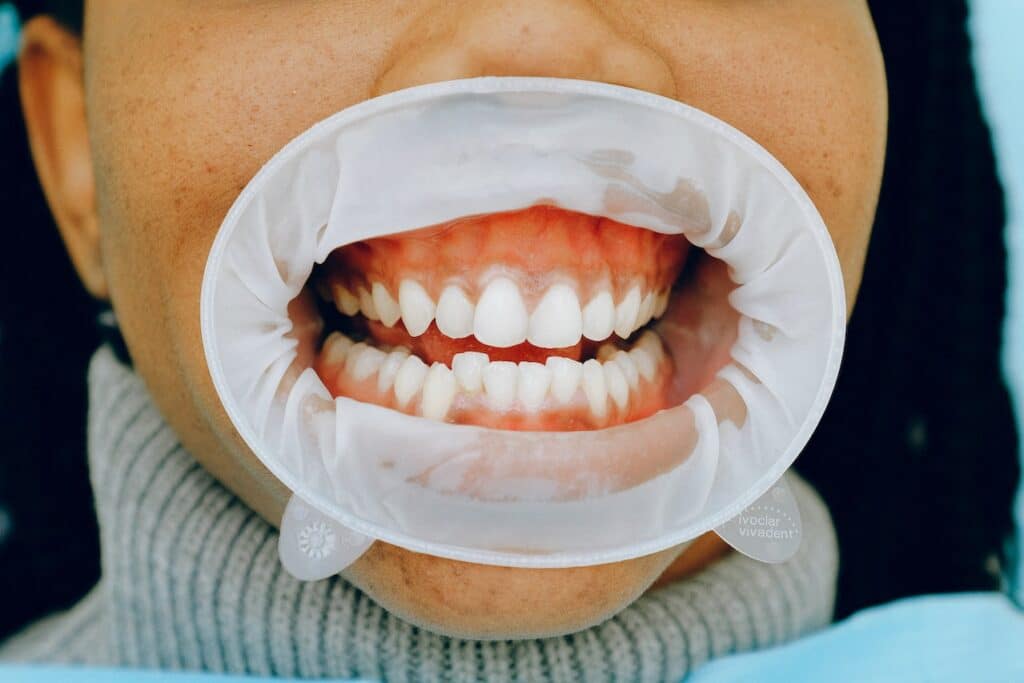Gum disease is a prevalent oral health issue that affects many people worldwide. Understanding gum disease, its causes, and prevention strategies can help maintain optimal oral health and overall well-being. This guide will discuss gum disease and its stages and share essential prevention techniques. At Pickering Dental Services, we specialize in a wide range of family dentistry services, including periodontal care, to ensure the best possible dental health for our patients.
What Is Gum Disease?
Gum disease, or periodontal disease, is an inflammatory condition affecting the gum tissue and supporting structures of teeth. It occurs due to the accumulation of plaque—a sticky film of bacteria and food particles on teeth. If not removed through proper oral hygiene, plaque can harden into tartar, leading to gum inflammation, bleeding, and eventual tooth loss if left untreated.
Stages of Gum Disease
There are two main stages of gum disease: gingivitis and periodontitis.
1. Gingivitis
Gingivitis is the initial stage of gum disease, characterized by red, swollen, and bleeding gums. At this stage, gum disease is still reversible, as the inflammation has not yet affected the underlying bone and connective tissue. If detected early and addressed with proper oral hygiene and dental care, the progression of gum disease can be halted.
2. Periodontitis
Periodontitis is the advanced stage of gum disease, where the inflammation spreads to the surrounding bone and connective tissue. This stage may lead to loss of teeth-supporting structures and, eventually, tooth loss. There are different forms of periodontitis, including aggressive periodontitis, chronic periodontitis, and periodontitis as a manifestation of systemic diseases.
Preventing Gum Disease
Preventing gum disease requires a diligent and consistent oral hygiene routine. The following strategies can help maintain good oral health and prevent the development and progression of gum disease:
1. Brush Regularly: Brush your teeth at least twice daily using a soft-bristled toothbrush and fluoride toothpaste. This will help remove plaque and bacteria buildup on the teeth and gums.
2. Floss Daily: Flossing removes plaque and food particles between the teeth and along the gumline—areas the toothbrush cannot reach. Regular flossing is crucial for preventing gum disease.
3. Visit the Dentist Regularly: Regular dental check-ups and cleanings help ensure your oral health is well-maintained and any early signs of gum disease are detected and addressed promptly. Your dentist can also provide personalized recommendations for improving your oral hygiene routine.
4. Eat a Balanced Diet: A well-balanced diet, rich in vitamins and minerals, can help maintain good oral health. Include fresh fruits, vegetables, dairy products, lean meats, and whole grains in your daily meals. Limit the consumption of sugary and sticky foods, which can contribute to plaque build-up and dental decay.
5. Stop Smoking: Smoking is a significant risk factor for gum disease, as it weakens the immune system and makes it harder for your body to fight off infection. Quitting smoking can help prevent gum disease and improve overall oral health.
6. Manage Stress: Studies have shown a connection between stress and gum disease. Managing stress through healthy lifestyle habits such as exercise, meditation, and getting enough sleep can help prevent gum disease.
Conclusion
Understanding and preventing gum disease is crucial for maintaining good oral health and overall well-being. By following a consistent oral hygiene routine, visiting the dentist regularly, and adopting other prevention strategies, you can help ensure the long-term health of your teeth and gums.
At Pickering Dental Services, we are committed to delivering the very best in gentle family dental care, including periodontal care and dental extraction services when necessary. Trust our experienced team to help you maintain a healthy, confident smile. Contact Pickering Dental Services today to schedule a consultation and discuss the best preventive dental care options to suit your needs.



